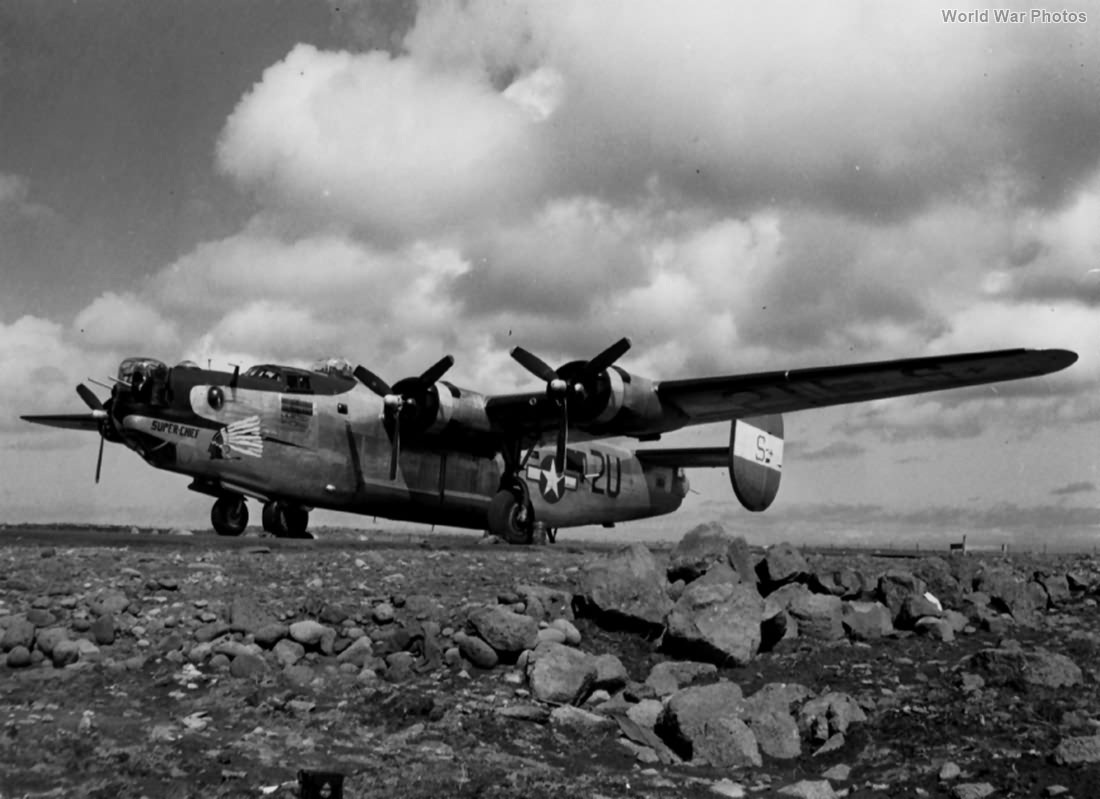466th Bomb Group (Heavy):
Overview and Command Assignments
- Assigned to Eighth Air Force: March 1944 – July 1945
- Wing & Command Assignments:
- 2nd Bombardment Division (BD), 96th Combat Bomb Wing (CBW): 7 March 1944
- 2nd Air Division (AD), 96th CBW: 1 January 1945
Component Squadrons
- 784th Bombardment Squadron (H)
- 785th Bombardment Squadron (H)
- 786th Bombardment Squadron (H)
- 787th Bombardment Squadron (H)
Combat Aircraft
- B-24H Liberator: From blocks 10-CF, 15-DT, and FO
- B-24J, B-24L, and B-24M Liberator
Station
- Attlebridge Airfield, England: 7 March 1944 – 6 July 1945
- Air echelon arrived in the UK around 21 February 1944.
Group Commanding Officers (COs)
- Col Arthur J. Pierce: 17 December 1943 – 1 August 1944
- Col Luther J. Fairbanks: 1 August 1944 – 30 October 1944
- Col William H. Cleveland: 1 November 1944 – 17 February 1945
- Col Elvin S. Ligon: 17 February 1945 – July 1945
Mission Details
- First Mission: 22 March 1944
- Last Mission: 25 April 1945
- Total Missions: 232
- Total Credit Sorties: 5,762
- Total Bomb Tonnage: 12,914 tons
- Aircraft Missing in Action (MIA): 47
- Other Operational Losses: 24
- Enemy Aircraft Claims: 29 destroyed, 3 probably destroyed, 14 damaged
History
- Activated: 1 August 1943 at Alamogordo Army Air Field, New Mexico.
- Training:
- Began training at Kearns Field, Utah, at the end of August 1943.
- Moved back to Alamogordo Army Air Field, New Mexico, on 24 November 1943.
- Transferred to Topeka Army Air Field, Kansas, early February 1944.
- Ground echelon sailed from New York on the Queen Mary, 28 February 1944, and the air echelon flew to the UK by the southern ferry route.
- Redeployment to the USA:
- Aircraft left Attlebridge around mid-June 1945.
- The ground echelon sailed from Greenock on the Queen Mary, 6 July 1945, arriving in New York on 11 July 1945.
- After 30 days of rest and recuperation (R&R), the group reassembled at Sioux Falls Army Air Field, South Dakota, on 25 July 1945.
- The group was selected for B-29 training and established at Pueblo Army Air Base, Colorado, and then Davis-Monthan Field, Arizona.
- With the end of hostilities in the Pacific, the group was run down and inactivated on 17 October 1945.
Aircraft Markings and Color Schemes
B-24 Liberators (February 1944 – July 1945)
Original Paint Scheme:
- Dark Olive Drab and Neutral Gray factory finish.
- Circle L Group Insignia:
- Vertical Tail: 69-inch diameter white disc with a 36-inch Insignia Blue letter “L.”
- Wing: 78-inch diameter white disc with a 48-inch letter “L.”
- Tail Number: Repainted in yellow below the Circle L.
- Call-Letter: Yellow, 24-inch high, positioned below the tail number. Each squadron used letters in alphabetical order from A, excluding C.
Squadron Codes:
- Before operational status, squadron codes were painted in blue-grey, 48 inches high, on the rear fuselage aft of the waist gun positions.
- 784th Bomb Squadron: T9
- 785th Bomb Squadron: 2U
- 786th Bomb Squadron: U8
- 787th Bomb Squadron: 6L
- Before operational status, squadron codes were painted in blue-grey, 48 inches high, on the rear fuselage aft of the waist gun positions.
Natural Metal Finish Aircraft (Mid-April 1944 onwards):
- Squadron codes and call-letters were painted in black, with the Group insignia as a white letter on a black disc.
High-Visibility Tail Markings (Beginning of May 1944):
- Replaced existing markings with a 36-inch wide white horizontal stripe across the outward-facing surfaces of the fin and rudder. The rest of the fin and rudder were painted red.
- Call-letters were 24 inches high, painted in red on the center of the white stripe.
- Distinguishing marks:
- 785th Bomb Squadron: Plus sign following the call letter.
- 786th Bomb Squadron: Bar above the call letter.
- 787th Bomb Squadron: Bar below the call letter.
- 784th Bomb Squadron: Did not use additional distinguishing signs.
Engine Cowling Rings (January 1945):
- Introduced squadron colors on the cowling rings:
- 784th Bomb Squadron: Red
- 785th Bomb Squadron: Blue
- 786th Bomb Squadron: Yellow
- 787th Bomb Squadron: White
- Introduced squadron colors on the cowling rings:
